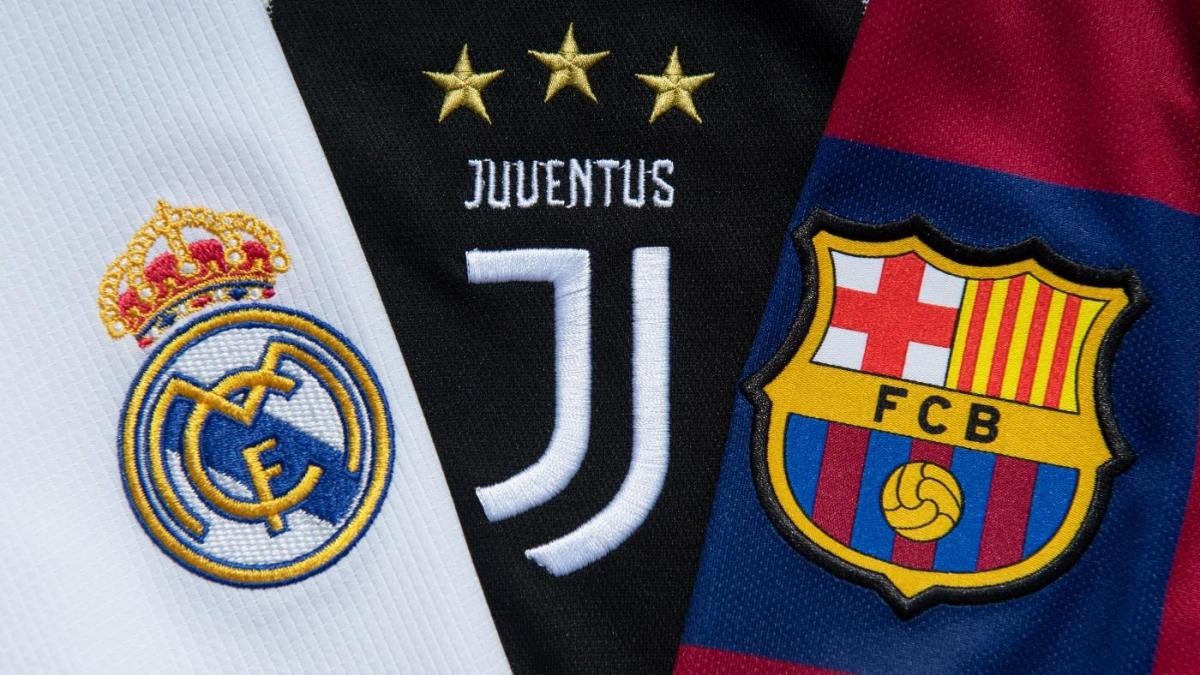UEFA to meet clubs who supported failed Super League attempt in court; what it means for future of football
Written by ABC AUDIO ALL RIGHTS RESERVED on July 11, 2022

European soccer’s governing body, UEFA, faces a band of elite continental soccer clubs in court this week regarding the aborted Super League project 15 months ago, and the outcome could shape the future of competitions such as the Champions League.
Only Real Madrid, Barcelona and Juventus remain committed to the failed venture originally formed by 12 breakaway clubs and the case will now be heard by the Court of Justice of the European Union in Luxembourg this week.
What was the so-called Super League?
It was to be a season-long competition comprised of 20 teams which would compete with the Champions League and play during midweeks with 15 permanent founding participants and five non-permanent annual contestants. JPMorgan Chase & Co. was set to bankroll the project to the tune of $4.08 billion with current UCL prize money currently set at $2.04 billion and split between 32 clubs.
English clubs withdrew from the project inside of two days after major supporter uproar and government pressure with Atletico Madrid, AC Milan and Inter Milan also following suit.
Why is this in court?
European clubs using this sort of threat to ensure changes to the Champions League structure is nothing new and has existed since the 1990s. Through that approach, they have acquired more qualification places for major leagues such as England, Spain, Germany and Italy, prize money which favors bigger clubs and regular qualifiers, as well as extra games come 2024.
However, the 12 clubs which attempted to for the Super League back in April 2021 were not satisfied with that and attempted to launch their latest assault without the support of key clubs Bayern Munich and Borussia Dortmund of Germany as well as Paris Saint-Germain of France. The Qatari-owned Ligue 1 giants’ refusal was a big blow given their star-studded squad and modern popularity.
UEFA will aim to convince Europe’s top court that they were rightfully allowed to block any clubs from joining a new, external league.
UEFA’s argument
That they watch over soccer’s role in Europe by overseeing competitions which are open to all clubs, not only the elite, and they put money back into sport at the lowest levels. The Super League was in violation of the European Club Association’s agreement with UEFA, while the European governing body also outlaws the grouping of clubs via unauthorized competitions.
UEFA president Aleksander Ceferin expressed his sincere displeasure with the approach of the clubs shortly after the failed coup and tried to boot out Super League supporting clubs from all competitions. There are currently ongoing UEFA disciplinary proceedings concerning the rebels, and Ceferin made it clear that big clubs can and will be punished for their attempts to force it into existence.
“First of all, I do not like to call this the Super League because it is anything but a Super League,” he said in Vienna earlier this year. “For me this project is over, once and for all, or at least for 20 years. I can assure you the rules, disciplinary and others, will be the same for any club. If we see a violation of our regulation, then any club will be punished. We can punish anyone who violates any of our regulations. Here they claim we have a monopoly, and I have said many times that nobody must play in our competition.
“No federation must be a member of UEFA. They have all the rights to create their own UEFA, all the rights to create their own competitions. Under our regulations, if you play in another competition you cannot play in our competition, and this is far from being a monopoly. The problem is they do not want to play in any other competition. They just speak about something and go to court but want to play in our competition. This is a bit of a mess, but we will sort it out.”
The clubs’ argument
Some of the clubs which have established themselves based on income and prestige which comes through regular participation in the Champions League now want the freedom to run their own competition.
The 12 original rebel clubs also pointed to the economic impact of COVID-19 and consequent instability and claimed that the Super League would financially support themselves as well as clubs further down the pyramid.
They believe that this path is the future of the sport in Europe and big clubs were aiming to make sure they were not left out.
What should we expect?
Initially, two days of deliberation with judges from 15 of 27 EU member states and a majority in favor of UEFA. Around 20 governments should take part on Monday with Tuesday’s all-day session dealing with judges’ questions to the different parties. Any ruling is unlikely to arrive this year and will not affect any breakaway clubs playing in UEFA competitions this coming season.
Of the original 12, 10 will be in the Champions League with only Manchester United and Arsenal in the Europa League. An update on the case is unlikely before September with a non-binding opinion likely to arrive before a binding judgment which will require more time.
Potential impact
Arguably not since the Bosman Ruling of 1995 has the Luxembourg court seen such an important sports case. That decision effectively changed the face of soccer’s transfer system, raising pay for top players and contributing towards an economic and competitive divide between affluent clubs and others. This has the potential to change the shape of continental competition and potentially even the elite game depending upon any ultimate verdict. A move towards something resembling the Super League is considered inevitable by many, so could this be another watershed moment for soccer’s future?
The post UEFA to meet clubs who supported failed Super League attempt in court; what it means for future of football first appeared on CBS Sports.



